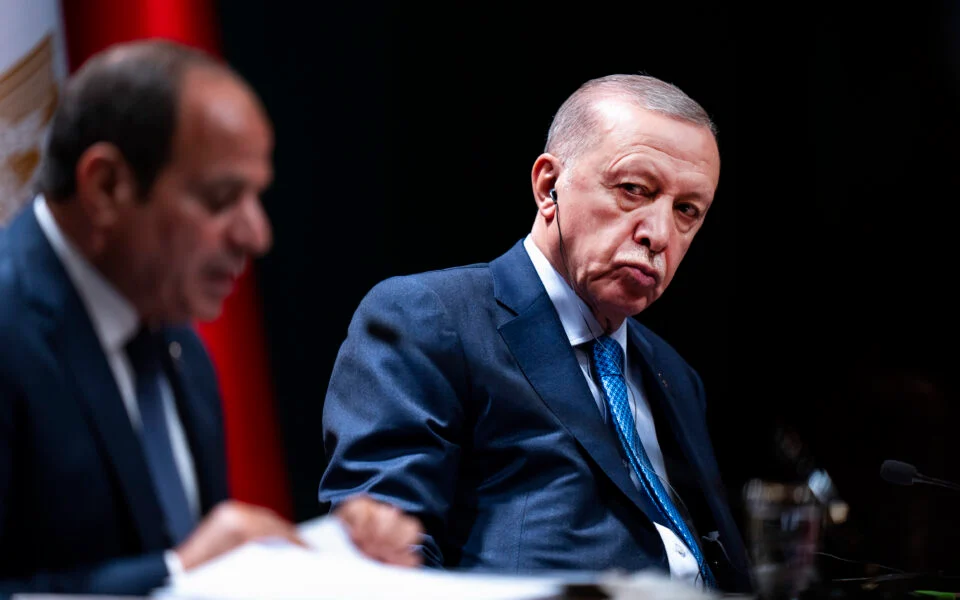EKATHIMERINI, February 1, 2025
A recent meeting in Istanbul organized by the International Republican Institute, bringing together diplomats, academics and politicians, was very revealing in terms of how Turkey views its relations with Greece. Turkey’s rise to prominence as a mediator between the West and the new regime in Syria has obviously given wings to Ankara’s neo-Ottoman dreams. It was obvious from the discussions which took place that Turkey is regarded as a powerful country with an influential voice (almost similar to that of Germany or France).
Greece is no longer a foreign policy priority for Turkey. Ankara is speaking directly to the world’s major players about subjects that are a lot more important than the Aegean continental shelf or the Athens Flight Information Region. This does not mean that Greece is no longer regarded as a problem. The Turks deal with us out of necessity, because we are a neighbor that potentially disrupts their vital space. They have border disputes with us that they regard as being of secondary importance. They do, however, affect Turkish national interests and Ankara is determined to safeguard these. The Greeks would be wise to resolve these issues bilaterally, before Ankara decides to make them its exclusive business.
Ankara’s positions have not been defined by logical continuity, but by whichever way Turkey’s interests lie. For the Turkish Cypriots, it wants to secure an independent state in the north and a share of the hydrocarbon deposits in the south. It wants recognition of faits accomplice because it’s been 50 years since the invasion. It doesn’t call on the Palestinians, though, to accept the “reality on the ground,” even though it’s been 77 years since they were displaced by Israel. It wants the demilitarization of the eastern Aegean islands in keeping with the Lausanne Treaty but also wants a review of the same treaty (with regard to the Muslim minority in Thrace and the borders). We have also heard it repeating notions that once belonged to extreme nationalist circles (such as that the Turks used to form the majority in Cyprus but were expelled by the island’s Greeks).
There were those in Greece who hoped, after the 1996 Imia crisis, that challenging Greek sovereignty over the islands of the eastern Aegean would only be used by Ankara like a bargaining chip. That it would step down from its claims if a consensus was reached on the matter of increasing territorial waters and delimiting the continental shelf. The Istanbul meeting, however, confirmed that this is the position of all Turkish stakeholders and a constant of Turkish foreign policy. The demilitarization of the eastern Aegean islands, which are “too close” to Turkish shores for comfort, is another theme that dominated the discussions.
Another notable aspect of the meeting was an apparent lack of knowledge regarding specific facets of Greek-Turkish relations. There used to be Turks (primarily diplomats, as well as academics and a few politicians) who had an in-depth understanding of these issues. For instance, they would never have made the entirely false claim that the issue of electing the ecumenical patriarch has been resolved because Turkey supposedly automatically grants Turkish citizenship to whoever is elected. Such ignorance may be the most alarming sign yet concerning the future.
Greece is no longer regarded as a vital issue for the Turks and they do not concern themselves with the details. Instead, they seek a broad resolution based on the stronger party being able to impose its will on what is perceived as the weaker one. At the same time, they seemed to be exhibiting a series of phobic syndromes, such as: “You don’t worry us, but we are concerned about the possibility of a major power using you against us, as was the case in 1919-22.” Some novel views were also expressed, including references to a “second line of defense,” linked to the upgrade of the port of Alexandroupoli in northern Greece by NATO and the Americans.
Where is all this coming from? Why, from President Recep Tayyip Erdogan of course. For as long as Turkey sought to remain anchored to the West and Europe, Greek-Turkish relations were a Turkish foreign policy priority. After Erdogan’s rise to power, Turkey developed regional strategies in the Middle East, Asia and Africa that were not connected to the West and was, therefore, not affected by the state of Greek-Turkish relations. Today’s Turkey is an entirely different country to what it was in 1974. We now share a border with a country that believes it is an empire.
Angelos Syrigos is an associate professor of international law and foreign policy at Athens’ Panteion University, and an MP with New Democracy.

